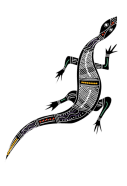READ NEXT
Securing consent
Securing consent might be a lengthy process and can involve talking to many people.
It is important to understand that consent is something that can also be withdrawn. It is good business practice to establish ongoing conversations in community about how Indigenous Knowledge could be used in your business before trying to get protection through the IP system.
We strongly recommend you:
- seek informed consent from the Traditional Custodians of this knowledge
- obtain permission to use it
- thoroughly document your approach.
If you're developing IP that uses or might draw on Indigenous Knowledge, you may want to consider the important things raised with us in our consultation forums with Indigenous and non-indigenous stakeholders.
Indigenous Cultural and Intellectual Property (ICIP) is a term that encompasses all aspects of Indigenous Knowledge and Traditional Cultural Expressions to describe the rights of Indigenous peoples to their cultural heritage and Indigenous Knowledge.
Australia supports the United Nations Declaration on the Rights of Indigenous Peoples (UNDRIP). The UNDRIP international charter upholds the right of Indigenous peoples to maintain, protect and develop the past, present and future use of their cultures.
ICIP includes both tangible and intangible traditions. Tangible property, things you can see and touch, such as:
- cultural objects
- art pieces
- performances
- languages.
Intangible property – - are traditional practices and knowledge, such as:
- wisdom passed down through generations
- storytelling traditions
- ancient methods and skills.
ICIP also extends to modern recordings, depictions and the digital storage of Indigenous culture:
- books
- movies
- music
- online databases.
Also, it’s important to note that some Indigenous Knowledge is regarded as secret and sacred. This knowledge is not meant for business use and includes:
- secret ceremonies
- sacred songs.
Some knowledge could be used commercially, but consent from the Traditional Owners should be sought and protocols attached to its use should be observed.
Integrating ICIP within existing IP laws presents challenges. Current copyright protection and Australian IP laws might protect individual pieces of art or designs, but they often don’t protect the traditional ways and skills used to make them.
Many of these traditions, like how plants are used or the right to tell a story may be communally owned and are shared by the community.
To safeguard your business idea or understand more about IP and the use of Indigenous Knowledge, you may find the early guidance of an IP attorney useful in your business planning.
Consent and engagement considerations
Consent may be a collective decision made by Traditional Owners and is reached through customary decision-making processes of each community. Consultation and participation are important components of the consent process.

We encourage any business applying for an IP right that uses Indigenous Knowledge to ensure they have the free, prior and informed consent of the Traditional Custodians or communities who own or have stewardship of the knowledge.
Obtaining consent before proceeding to use Indigenous Knowledge is good practice. Prior informed consent can help ensure you do not cause cultural harm or offence, and avoid costly legal disputes.
We recommend businesses can demonstrate they have worked with the Traditional Custodians to seek consent and have permission to use Indigenous Knowledge before lodging an application for IP rights.
Managing Indigenous Knowledge in your business
When seeking consent or negotiating with Traditional Custodians, it's important to think about how Indigenous Knowledge will be managed in your business.
Some things you may want to discuss with community members include:
- Do the Traditional Custodians consent to you having IP rights that may include aspects of their Indigenous Knowledge?
- What aspects of their Indigenous Knowledge might be covered?
- Can other community members use the Indigenous Knowledge?
- What process will be followed to make decisions regarding the future use of the Indigenous Knowledge and related IP rights?
- How will your business share any benefits from using the Indigenous Knowledge with the community or Traditional Custodians?
Building a respectful relationship with knowledge holders can also add to your business profile to build consumer loyalty and add market value to your product or service.


